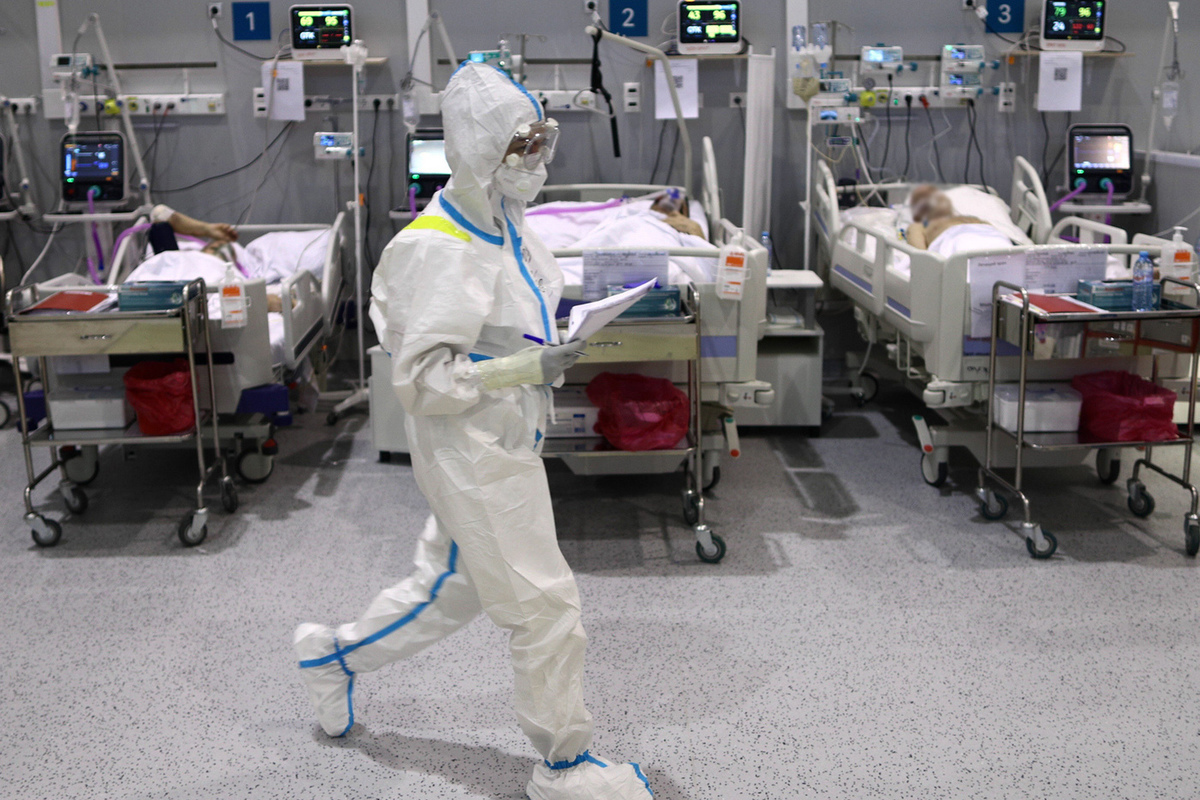Russian scientists have found an error in a common method of treating coronavirus
[ad_1]

Using blood thinners may complicate the disease
Many of us have had COVID-19. Those who have gone through this journey in full and reached the hospital remember the daily injections in the stomach with heparin to thin the blood. It turned out that they could play a cruel joke on some patients and lead to complications of the disease. This conclusion was reached by scientists from the National Medical Research Center for Pediatric Hematology, Oncology and Immunology. Dm. Rogachev under the leadership of Academician of the Russian Academy of Sciences Fazoil Ataullakhanov. The results of the work of physiologists, immunologists and doctors who conducted research in 12 Russian clinics were published in the international magazine .
We asked Deputy Academician-Secretary of the Department of Physiological Sciences of the Russian Academy of Sciences, Chairman of the Section of Physiology, Academician of the Russian Academy of Sciences Mikhail Ostrovsky to comment on the work.
– Mikhail Arkadyevich, tell us why heparin turned out to be so dangerous that it was necessary to conduct such a large-scale study, in which as many as 4,000 patients took part?
– Let’s start from the very beginning of the “Covid” story. When the pandemic first began, its symptoms seemed like it was just a type of pneumonia. However, it quickly became clear that this was not entirely true. It turned out that the disease can occur in a mild or severe scenario. Intermediate options were rare. A mild scenario is like a minor cold. The severe scenario usually involves blood. And then it happened that many doctors, both here and abroad, took the wrong path in treating the severe variant of COVID-19.
– As far as I remember, the severe variant is associated with vascular damage.
– Yes it is. In patients, the virus primarily affects blood vessel cells. The body immediately begins to correct these damages by forming blood clots in the damaged areas of the vessels. This is a normal reaction of the body. A thrombus, like a plug, temporarily closes the damaged area, allowing other cells to restore the vessel walls. During this “repair”, which is 2-3 days, some vessels are blocked, blood flow is stopped. But then the oxygen supply to healthy cells deteriorates. And this prevents the immune system from fighting the virus.
A vicious circle arises. Lack of oxygen weakens the body, which, in turn, increases the virus’s damage to blood vessels and their closure. And then the patient, at best, ends up in intensive care. If the immune system is strong enough, like in young people, the person recovers. What if the immune system is not so strong?
– For such patients, it was decided to remove the “plugs” of blood clots in order to restore blood flow.
“It seemed logical to break the vicious circle in this way, and the global medical community quite quickly came to treat COVID-19 with anticoagulants. But they missed the fact that together with the “plugs” – blood clots, the blood loses its coagulability! Then there is a real danger of internal bleeding. And this is life-threatening.
– What conclusion did Ataullakhanov’s group come to?
– Based on a clinical study, scientists came to the conclusion that severe patients often need not to increase, but rather reduce the dose of heparin, and sometimes even abandon it altogether. It all depends on the patient. The academician’s team managed to select tests with the help of which it became possible for seriously ill patients to personally select the dose of heparin – to find a middle ground in order to “treat” blood vessels and prevent bleeding. Such personal selection has already saved the lives of many, many people who suffered from COVID in the “severe scenario.”
[ad_2]
Source link








